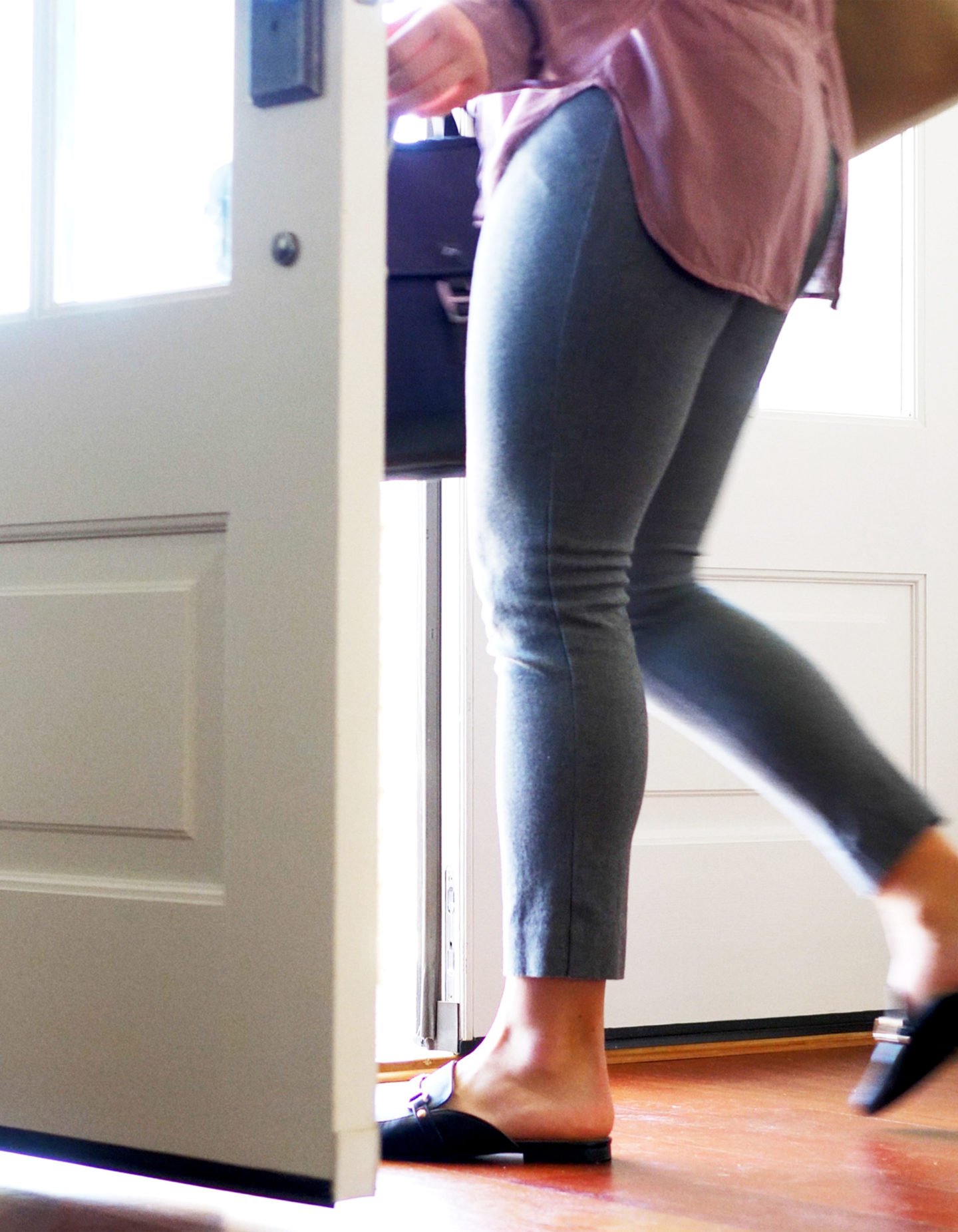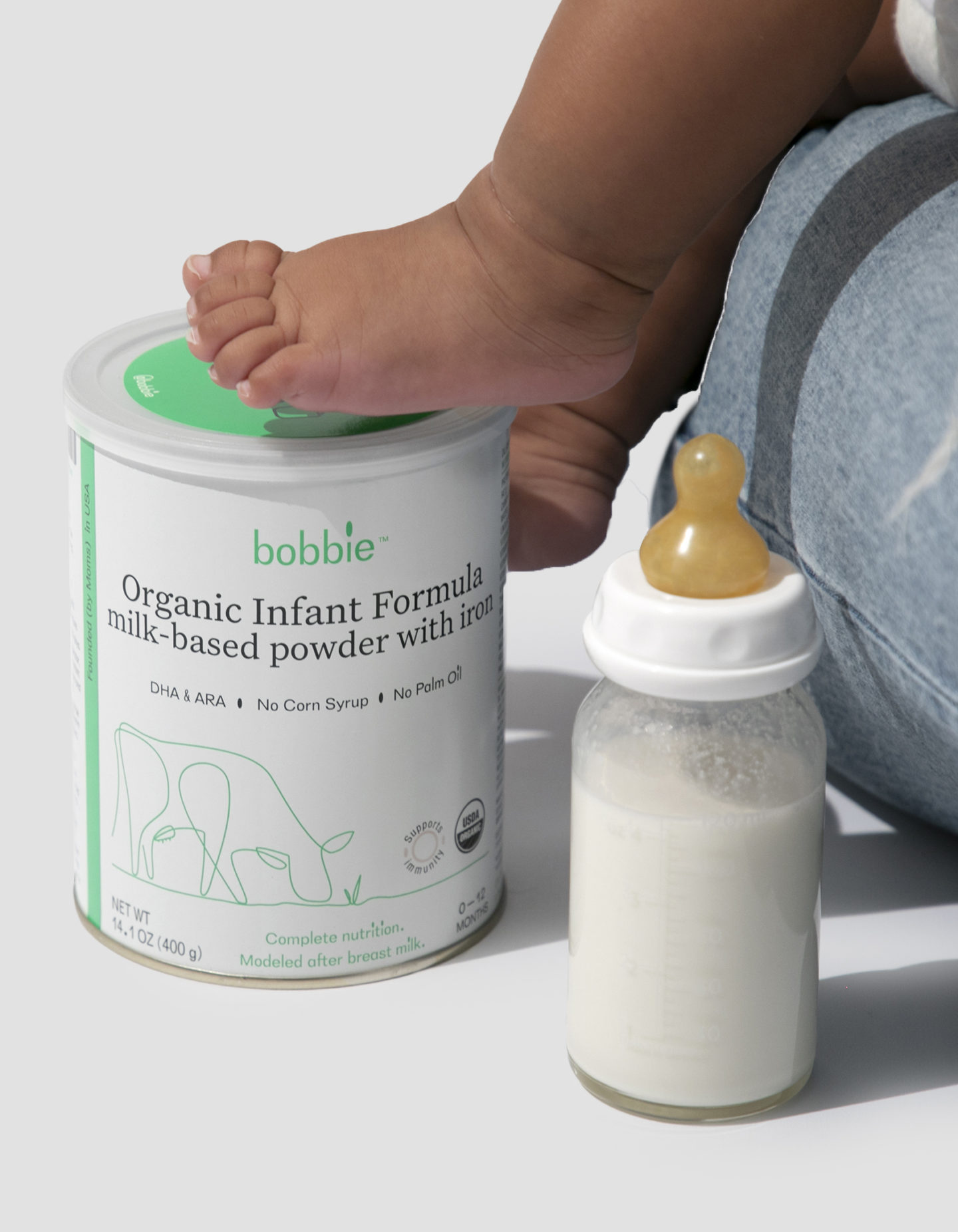 The caregiver conversation is a toughie for new mothers. The idea of leaving our little ones – whether to return to work or just take an hour to get to Trader Joe’s – has us wringing our hands with guilt and self-doubt. Will my baby love her more than me? Am I f*cking my baby up for life by going back to work? Am I missing the most precious moments of their early years? Guess what? Maybe! But that’s OK. In fact, employing someone else to care for your children is actually opening up their capacity to love, not limiting their love for you, so try to think of a caregiver as joining your village, rather than cock-blocking your own parenting. Plus mama’s gotta work (and/or work out!), and that’s OK, too.
The caregiver conversation is a toughie for new mothers. The idea of leaving our little ones – whether to return to work or just take an hour to get to Trader Joe’s – has us wringing our hands with guilt and self-doubt. Will my baby love her more than me? Am I f*cking my baby up for life by going back to work? Am I missing the most precious moments of their early years? Guess what? Maybe! But that’s OK. In fact, employing someone else to care for your children is actually opening up their capacity to love, not limiting their love for you, so try to think of a caregiver as joining your village, rather than cock-blocking your own parenting. Plus mama’s gotta work (and/or work out!), and that’s OK, too.
For more on nanny dynamics, we spoke to Dr. Aliza Pressman, our resident pediatric expert, co-founder of seedlings group and host of “Raising Good Humans,” who’s dropping knowledge on how to navigate this very special relationship.
Why do you think the idea of a nanny can be so stressful for a new mom?
I remember this one woman made a rule that her caregiver couldn’t hug and kiss her kids. She didn’t want them to be as attached to the caregiver. I felt so much compassion for her because she was really scared in that way that an older sibling feels towards a new baby. She thought, what if there aren’t shared resources for my child to love more people? That’s just not the case. In fact it’s amazing to have people in a child’s life who they can turn to. People who are trustworthy and loving, like a caregiver. The nanny/baby relationship is fraught for moms. This is another person acting as mom and that can be painful. And so if you reframe it as just being more similar to communities where multiple people are there for your child, where lots of people take responsibility for a community of kids, it doesn’t diminish the love they have for you but it does expand the possibility of experiencing love in the world.
What goes into finding the proper caregiver?
Whenever anyone asks me, what’s the most important quality a nanny can have? Is it being bilingual? Is it being good at meal prep? I always say, “You can teach someone how to cook or how to play in open-ended, engaging play, but one thing that’s hard to teach is the ability to be warm.” So I say start with warm and go from there. It’s also important for you to help your child feel like they have a stable nanny who is loving and supportive, but the relationship shouldn’t be taken lightly. It’s important to have stability and consistency if you can.
What happens when, god forbid, your baby or child prefers their caregiver over you?
One thing we know is the act of caregiving itself increases oxytocin in both baby and child. This feel-good hormone is a high you can get from connecting. So often times when a dad or mom says to me that they’re feeling left out, one thing I recommend is to start being the one who changes the diapers. It’s a thing you can do if you find yourself in a situation where you feel like you’re not getting as much connection. Especially in that first year, diaper changing, feeding, bathtime, these caregiving moments require face-to-face interactions you don’t get at other times in childhood. They are precious times, but also a nanny is going to connect, and if your child is in a relationship that has caregiving and connecting, they may seem more interested in the nanny, and then you want to tweak the way you interact.
Also, these things pass. If you’re connecting with your kid as best as you can and they’re choosing someone else for now, find moments to be present for them. Take care, listen, follow their lead. Try not to have an agenda and put your phone away. Let’s say you’re working all day and the nanny is with the baby from 9-5, and you have a few hours and that’s it. As much as you can, when you first see the baby, everything else goes away and you’re present. It can be 10 minutes, it can be five minutes. It can be two hours. Whatever time feels right for you, but communicate with your baby and be ready to reconnect. By the way, as kids get older, we often come in from work and catch up with the nanny. But if you can say, “If you email me an update so I can connect with coming home, that would be better.” Also, don’t micromanage so much. If you trust someone to be with your baby, you don’t need to know how many poops they had per day, unless there’s a problem. It’s so hard to take the most precious human in your life and say, “You, person I just met, are going to care for the person I love.” It’s a huge leap of faith to appreciate the beauty of a nanny, but I love when I see nannies who so clearly get joy out of the interactions they have. It’s a very, very special job.
You can teach someone how to cook or how to play in open-ended, engaging play, but one thing that’s hard to teach is the ability to be warm.
What are some strategies for managing this dynamic?
Set up a relationship in your family where you don’t want to be afraid to give guidance. On the other hand, you want to give a lot of respect. You want to find someone for your personality who can be the kind of parent that balances or represents what you’d want them to focus on. If you have someone who is focused on academic skills and you want your kid to be focused on social and emotional learning, there might be a disconnect. If someone is very strict and you’re permissive, you have to be philosophically on the same page. Or you have to acknowledge that, OK, I’m permissive, so I need a more authoritative nanny. You have to think about what’s going to contribute to this community.
Navigating Tough Caregiver Conversations
Don’t hold it in
Confront issues as they arise to avoid building conflict and tension. When issues are immediately tackled, you can then focus on finding resolutions instead of sorting out unresolved feelings.
Focus on the situation, not the person
Instead of saying, “You’re not playful enough with the children,” make it about the issue and offer a plan of action like “How about taking the kids to the park more often?”
Set a day to discuss any difficulties your family is facing
You many not feel comfortable discussing your personal life with an employee, but caring for your family is what your nanny is hired to do. Focus on the impact your kids may be experiencing. For example, you can say, “We are currently dealing with XX and I thought you should know because it may impact the kids.”
Don’t be afraid to ask for additional support
Your nanny could potentially be the perfect candidate to offer a bit more assistance if your family is navigating stressful times. Do you need her to keep an extra watchful eye on the kids to see if the situation is having negative impacts? Do you need her to stay a few extra hours here and there or help out on days she may have had off? Don’t be afraid to ask, but also be clear that she is free to decline.
If your caregiver asks for a raise, do your research
Be aware of standard pay and annual raise rates for nannies. According to Care.com’s 2018 Cost of Care survey, the average nanny makes about $580 a week in the U.S., or about $14.50 per hour. But you should also factor in any credentials and certifications, like CPR and First AID, when setting a fair wage. Offering fair pay up front will decrease the need for the raise conversation in the first place. (Source: Care.com)
Include raise expectations in your contract
Every working relationship should be protected with a contract and that’s no different when you employ a nanny. Your contract should establish her annual wage and also outline expected annual pay increases, so there is no room for misunderstanding.




